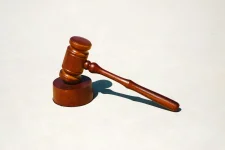Many things happen at work every day. Some actions hurt women and men based on how people behave. Sexual harassment affects women at work more than men. This includes words, teasing, or even criminal attacks on others at work.
Sexual harassment happens when someone asks for sexual favors, makes unwanted advances, or creates bad conditions for others. The person might connect job decisions to sexual requests. They might create a scary workspace. Or they keep making advances even after someone says stop. This behavior breaks the rules about fair work standards under section 65 of the Constitution.
The Labour Act tries to handle sexual harassment by calling it an unfair work practice. When you touch someone without permission, make sexual comments, or show dirty pictures at work, you break this law. Punishments include stopping the bad behavior, paying money to victims, and facing criminal charges. But these fixes miss several important points.
The law lacks clear ways to decide how much money victims should receive. It offers nothing for the mental health help that victims need. Plus it has no way to stop people from taking revenge after someone reports harassment. Public service workers face different rules that treat sexual harassment as merely rude behavior rather than serious harm.
Zimbabwe could learn from South Africa's Employment and Equity Act. Their system pushes companies to create clear policies against harassment. Everyone who works must understand these rules. The South African approach offers better guidance when harassment happens because their rules explain things clearly.
International agreements define this problem as discrimination against women. The Convention on Elimination of All Forms of Discrimination Against Women views sexual harassment as gender violence. Women suffer more because society gives them less power than men. A woman might fear losing her job if she objects to sexual advances.
Human rights experts see sexual harassment as a form of control where people experience unfair treatment and violence. Nations must pass laws to protect citizens from all types of violence. This includes harassment that happens in daily life. Zimbabwe has the responsibility to protect everyone equally under these international agreements.
Lawmakers have made progress by creating some rules against sexual harassment. However, they need to recognize harassment as both unfair work practices and violence against equal rights. The Zero Labour Draft Bill might fix these problems if passed. It would clearly define sexual harassment and what counts as breaking the rules.
Each workplace should create its harassment policies based on its specific environment. Different jobs need different approaches to stop this problem. Better definitions and clear consequences will help everyone understand what behavior crosses the line. Companies must protect workers from harassment to create fair work conditions.
Sexual harassment happens when someone asks for sexual favors, makes unwanted advances, or creates bad conditions for others. The person might connect job decisions to sexual requests. They might create a scary workspace. Or they keep making advances even after someone says stop. This behavior breaks the rules about fair work standards under section 65 of the Constitution.
The Labour Act tries to handle sexual harassment by calling it an unfair work practice. When you touch someone without permission, make sexual comments, or show dirty pictures at work, you break this law. Punishments include stopping the bad behavior, paying money to victims, and facing criminal charges. But these fixes miss several important points.
The law lacks clear ways to decide how much money victims should receive. It offers nothing for the mental health help that victims need. Plus it has no way to stop people from taking revenge after someone reports harassment. Public service workers face different rules that treat sexual harassment as merely rude behavior rather than serious harm.
Zimbabwe could learn from South Africa's Employment and Equity Act. Their system pushes companies to create clear policies against harassment. Everyone who works must understand these rules. The South African approach offers better guidance when harassment happens because their rules explain things clearly.
International agreements define this problem as discrimination against women. The Convention on Elimination of All Forms of Discrimination Against Women views sexual harassment as gender violence. Women suffer more because society gives them less power than men. A woman might fear losing her job if she objects to sexual advances.
Human rights experts see sexual harassment as a form of control where people experience unfair treatment and violence. Nations must pass laws to protect citizens from all types of violence. This includes harassment that happens in daily life. Zimbabwe has the responsibility to protect everyone equally under these international agreements.
Lawmakers have made progress by creating some rules against sexual harassment. However, they need to recognize harassment as both unfair work practices and violence against equal rights. The Zero Labour Draft Bill might fix these problems if passed. It would clearly define sexual harassment and what counts as breaking the rules.
Each workplace should create its harassment policies based on its specific environment. Different jobs need different approaches to stop this problem. Better definitions and clear consequences will help everyone understand what behavior crosses the line. Companies must protect workers from harassment to create fair work conditions.












